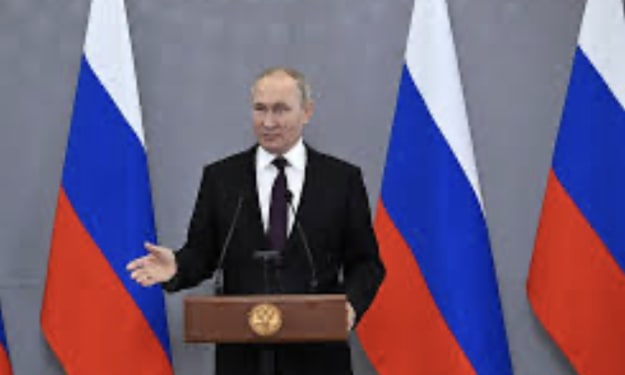KGB
KGB Russian spy network

The KGB was the main security agency of the Soviet Union from 1954 until its dissolution in 1991. The KGB's main functions were foreign intelligence, counterintelligence, operative-investigatory activities, guarding the State Border of the USSR, and the protection of the leaders of the Communist Party of the Soviet Union and of the Soviet state. The agency was a military service and was governed by army laws and regulations, similar to the Soviet Army or MVD Internal Troops. While most of the KGB was located in Moscow, it also had a significant presence in other republics of the Soviet Union, with each republic having its own branch of the KGB.
The KGB was responsible for many of the most notorious acts of repression in Soviet history, including the suppression of dissent and the persecution of minority groups. The KGB also played a key role in the Soviet Union's intelligence-gathering activities around the world, and it was involved in numerous espionage cases in the United States and other Western countries.
After the collapse of the Soviet Union in 1991, the KGB was disbanded and its functions were taken over by a number of different agencies, including the Federal Security Service (FSB) of the Russian Federation.
It was considered one of the most powerful and well-funded intelligence agency during the Cold War, and continue to influence Russia even today.In addition to its intelligence and security functions, the KGB also had a role in domestic politics and played a key role in maintaining the Communist Party's grip on power. KGB officers were involved in the selection of government officials and the suppression of political dissent. They also had a mandate to monitor the population and report any anti-Soviet sentiment or activities to the authorities.
The KGB employed a variety of tactics to maintain control, including surveillance, secret police, propaganda, and repression. They used wiretapping, mail interception, and other forms of surveillance to gather information on individuals and groups that were considered a threat to the state. The KGB also had its own prison system, where political prisoners and dissidents were often held and tortured.
The organization was also tasked with protecting the leaders of the Communist Party of the Soviet Union and Soviet state and their family members, as well as the VIPs, like foreign politicians and dignitaries.
The exact number of people who were killed, imprisoned, or otherwise persecuted by the KGB is not known, but it is believed to be in the millions.
After the fall of the Soviet Union, many KGB records were made public, and the activities of the KGB during the Soviet era have been widely criticized and condemned for its human rights abusesAfter the fall of the Soviet Union, the KGB was dissolved, and many of its functions were taken over by the Federal Security Service (FSB) which was created in 1995 and continues to operate as the main security agency in Russia today. The FSB is responsible for counterintelligence, internal security, and counterterrorism, and it has been involved in a number of high-profile cases in Russia and abroad.
The Russian Federal Law "On the Security Services of the Russian Federation" defines the powers of FSB. The FSB is legally prohibited from intervening in the affairs of the civil government, although in practice it has been known to exert significant influence on politics and government.
The FSB is also responsible for the protection of the President of Russia, and it has the authority to carry out special operations in order to protect Russia's constitutional order and its citizens. However, in recent years, there have been reports of the FSB being used to suppress political dissent, punish opposition figures, and intimidate independent journalists and human rights activists, which is reminiscent of the KGB practices.
In conclusion, the KGB was one of the most powerful and feared intelligence agencies during the Cold War, and it played a major role in maintaining Soviet control over its population and influence abroad. The end of the Cold War and the collapse of the Soviet Union led to the disbandment of the KGB, but its functions and many of its personnel were absorbed by the FSB, which has been criticized for its human rights abuses and political repressionIn addition to its intelligence and security functions, the KGB also had a significant foreign intelligence and espionage activities. The KGB had a vast network of agents, both official and unofficial, spread throughout the world, and it was involved in many high-profile espionage cases, including the stealing of American atomic bomb secrets and the recruitment of spies within Western intelligence agencies. The KGB was known to have used a variety of tactics, such as bribery, blackmail, and false flag operations, to gather information and influence foreign governments.
The KGB also had its own foreign intelligence arm, known as the First Chief Directorate (FCD), which was responsible for conducting espionage and covert operations outside the Soviet Union. The FCD had several subdivisions, including the Directorate "S" which was responsible for the illegal recruitment of foreign intelligence officers, the Directorate "T" which specialized in the use of scientific and technical intelligence and the Department "X" which was responsible for sabotage and subversion.
The KGB's foreign intelligence activities were often focused on gathering information about the military and political activities of Western countries, particularly the United States, and it was known to have targeted American military and political leaders, as well as American businesses and institutions.
In the post-Soviet era, Russia's intelligence agencies continue to carry out espionage and covert operations, and it is considered one of the most active and capable foreign intelligence agencies in the world.
However, it should be noted that the activities of the KGB and its successor organizations are highly secretive, and it is difficult to know for certain the full extent of their operations or the methods they use.In addition to its foreign intelligence activities, the KGB also played a significant role in shaping Soviet foreign policy and international relations during the Cold War. The KGB had a seat on the Soviet government's Foreign Policy Council, and its officials were often involved in the decision-making process for Soviet actions and initiatives on the global stage.
The KGB also had a large role in the Soviet Union's propaganda efforts, both domestically and internationally. The agency had its own department, known as the "Agitprop," which was responsible for the production and distribution of propaganda materials, both within the Soviet Union and abroad. The Agitprop was known to have a wide range of activities including funding friendly foreign political parties, setting up front organizations and manipulating the media.
The KGB was also involved in the training and support of communist and pro-Soviet movements and governments around the world, and it played a key role in the spread of communism during the Cold War.
In summary, the KGB was a powerful and influential organization that played a central role in Soviet society and foreign policy during the Cold War. Its foreign intelligence activities, propaganda efforts, and support for Communist movements around the world were an important part of Soviet efforts to spread communism and exert influence on the global stage. Even though the organization has been dissolved, the legacy of the KGB continues to shape Russia's intelligence capabilities and foreign policy objectives today.





Comments
There are no comments for this story
Be the first to respond and start the conversation.